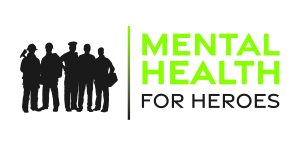The Silent Struggle: Mental Health Challenges Among First Responders
First responders are the backbone of our communities, often hailed as heroes for their unwavering dedication to protecting and saving lives in the face of danger. They rush into emergencies when others flee, providing critical aid and support in some of the most harrowing situations imaginable. However, behind the uniform and the badge lies a silent struggle that is all too often overlooked: the mental health challenges that plague many first responders.
The nature of a first responder’s job exposes them to traumatic events on a regular basis. Whether it’s responding to a violent crime scene, rescuing individuals from burning buildings, or witnessing the aftermath of a natural disaster, these experiences can leave lasting psychological scars. Over time, the cumulative effect of repeated exposure to trauma can take a significant toll on the mental well-being of first responders, leading to conditions such as post-traumatic stress disorder (PTSD), anxiety, depression, and substance abuse.
One of the most concerning aspects of mental health challenges among first responders is the stigma that surrounds these issues within their communities. There is a prevailing culture of silence and stoicism, where admitting to struggling with mental health is often seen as a sign of weakness or incompetence. As a result, many first responders suffer in silence, reluctant to seek help for fear of being judged or ostracized by their peers.
The consequences of this stigma can be devastating. Without proper support and intervention, mental health issues among first responders can escalate, leading to impaired job performance, strained relationships, and even suicide. Alarmingly, studies have shown that first responders are at a significantly higher risk of suicide than the general population, highlighting the urgent need for action.
Addressing the mental health challenges faced by first responders requires a concerted effort from all stakeholders, including government agencies, employers, mental health professionals, and the first responder community itself. Here are some key steps that can be taken to support the mental well-being of our brave first responders:
Education and Training: Providing comprehensive education and training programs that raise awareness about mental health issues and equip first responders with the tools and resources they need to recognize and address these challenges in themselves and their colleagues.
Access to Confidential Support: Ensuring that first responders have access to confidential and culturally competent mental health resources, including counseling services, peer support groups, and helplines. These resources should be readily available and free from judgment or reprisal.
Breaking Down Stigma: Challenging the stigma surrounding mental health within first responder communities by fostering a culture of openness, support, and compassion. This can be achieved through initiatives that promote dialogue, share personal stories of recovery, and highlight the importance of seeking help when needed.
Leadership and Organizational Support: Creating supportive organizational cultures that prioritize the mental health and well-being of first responders. This includes leadership training to recognize the signs of mental distress, implementing policies that promote work-life balance, and providing adequate resources for mental health initiatives.
Research and Advocacy: Investing in research to better understand the unique mental health challenges faced by first responders and advocating for policy changes and funding initiatives that support their mental well-being.
It’s time to break the silence surrounding mental health challenges among first responders and prioritize the well-being of those who sacrifice so much to keep our communities safe. By working together to address stigma, increase access to support services, and promote a culture of care and compassion, we can ensure that our first responders receive the support they need to thrive, both on and off the job.


Leave a Reply